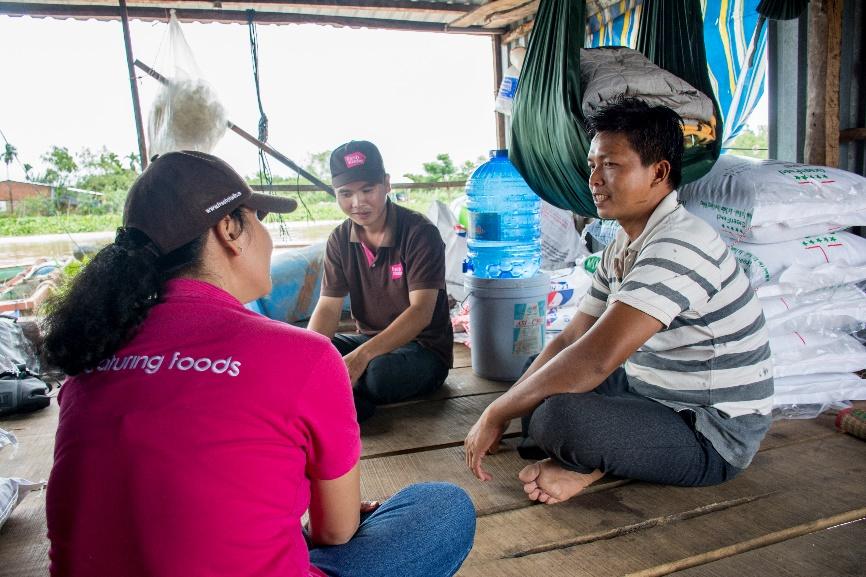There are many different types of seafood and just as many supply chains. In this context, meeting product specifications for each market end can be a real headache for customers. As part of our inspection service offer, we have been responsible for assuring the integrity of the seafood purchased by a renowned airline for more than 4 years. The seafood we inspect is produced in the heart of the Mekong Delta and served to thousands of passengers every year across the world.

One of our best customers is a leading international airline. As part of the high standard of its services, their catering department works in close collaboration with suppliers to offer a product that meets the particular specifications required for air travel in order to ensure that it provides an enjoyable moment to every passenger.
Over the past few years, Pangasius has been chosen as a main ingredient of their menu. Sourced from the heart of the Mekong Delta, many actors take part in producing and delivering the end-product served on-board. At Fresh Studio, we are one of the final links in this supply chain, making sure the strict product specifications of our client are met.
Based on the shipment forecast provided by the customer, our team of experienced inspectors arrange each inspection directly at the factory. Because the stakes are high, we work in close collaboration with our customer to make sure procedures are clear, not allowing any room for interpretation. In addition, random sampling together with clear AQL (Acceptance Quality Limits) is applied for all inspection criteria fixed by our client.
Like most third-party inspectors, we search for critical defects that may deceive the consumer or cause the whole shipment to be rejected at the border. These include fraudulent quantity and dimensions, overglazing, microbiological hazards and faulty packaging information.
More than just providing inspection service, we also support our client to deliver a menu comprised of quality food products that can bring enjoyment to its customers. For this, we conduct simple but essential sensory testing to provide feedback about the texture, smell, appearance and taste of the product.
Finally, all results of the inspections we conduct are compiled in an official report accompanied with our recommendations. Fresh Studio’s role means that our customer can rest assured that the product is in line with its specifications and that they can work safely with the supplier for the purchase. We are proud to support our client in developing its business and delivering better food to its customers every year.
Note: From our base in the Mekong Delta, we inspect at any seafood buyer. We do not take commission from local producers, and can assure clients that product specifications are met and that the vast expense of defective shipments can be avoided. Contact us for more information.





